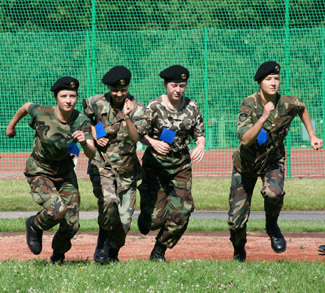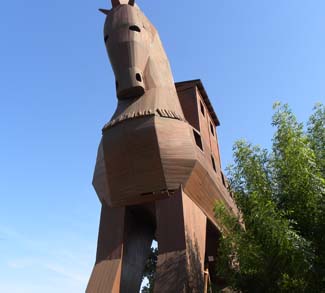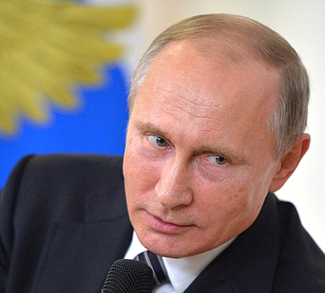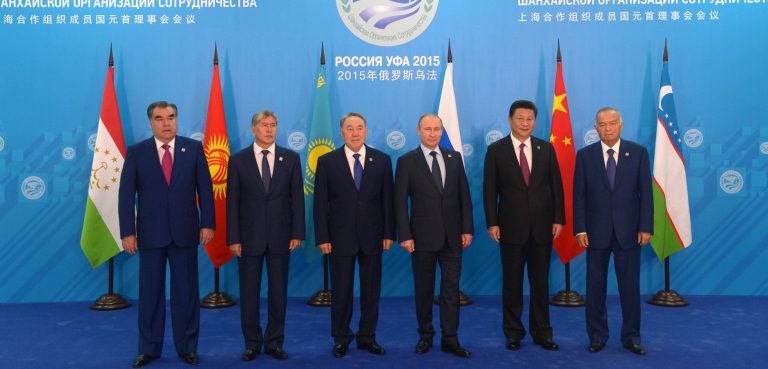One of the consequences of the geopolitical changes that have come to characterize modern civil society has been a surge in popularity of paramilitary units across Europe. This phenomenon is particularly observable in the Baltic States concerned about the rise of Russia’s military activity.
The Lithuanian Riflemen’s Union is a telling example. Established in 1919, the Union has become very popular in the past few years; its numbers have grown significantly. Now it has around 8,000 members, up from 6,000 two years ago.
Trained by military personnel and falling under the responsibility of the defense ministry, the Union serves the clear purpose of supporting the regular army’s capabilities and acting as an additional deterrent against external aggression.
As a result of a volatile security environment, the enthusiasm of this voluntary defense organization has been welcomed by the government as a “valuable contribution” to national defense.
In December 2015, the Union was granted automatic weapons in an agreement with the Lithuanian Ministry of National Defence. Earlier on March 23, 2015, the Lithuanian Weaponry Fund handed over weapons and bulletproof vests to the Lithuanian Riflemen’s Union as well.
But as we know, the road to hell is paved with good intentions. There is a real threat here in the emergence of a new aggressive power inside the country. Though the Lithuanian Riflemen’s Union has nothing in common with the Ukrainian Right Sector, it has all of the opportunities to adopt a similar structure, one that under certain conditions could even oppose the authorities and get out of control.
On the one hand, this paramilitary unit with 8,000 members could assist the national armed forces in the event of war; on the other, members of this non-partisan structure would not necessarily be obliged to follow orders. They may have a completely different point of view compared to the official government line. People here are not attracted by job agreements or salary; they do not take the oath as military men do. In other words, they may behave unpredictably. Some of them are real patriots, but some yet are driven by hatred, personal interests, and ambitions. And all of them have military skills. As a result, the Lithuanian Riflemen’s Union could turn into a real military power when armed and equipped. Taking into account the number of the Union (it is only twice less than the national armed forces), it should have completely different status and be better controlled by official structures.
When one of the largest Lithuanian media outlets – 15min.lt – published instructions on “neutralizing collaborationists” in the country. Members of the Lithuanian Riflemen’s Union proposed their own method to suppress the collaborationists if military actions start. Activists of the Union openly proposed methods on fighting “internal enemies” by psychological pressure and even full-on harassment. They behave as if the Lithuanian government has already delegated the Union such power. But it is nonsense. Lithuania is a democratic republic where law is above all.
Of course the national authorities are interested in a strong state, but giving weapons to such a big paramilitary organization amounts to sticking their necks out. In the future they should be ready to consider the interests of their own leaders. Like in Ukraine, armed people that once helped the government could change their views and openly express dissatisfaction with official policy. What will happen then? Look at Ukraine.
In a democratic state, only governmental structures should have access to weapons and military equipment. It’s doubtful that the government fully understands the potential threat. Out of fear of Russia, it doesn’t pay attention to the processes inside the country. Should the Union substitute the reserve components of the army? Do we need to trust in paramilitary structures? Are they loyal to the authorities? There are a lot of questions without any answers…
The opinions, beliefs, and viewpoints expressed by the authors are theirs alone and don’t reflect any official position of Geopoliticalmonitor.com.




